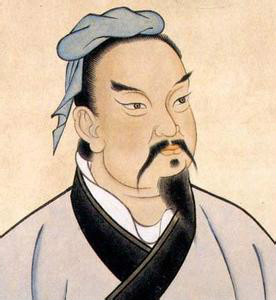The Art of War is a book about warfare that was written over 2500 years ago by Sun Tzu, but its teachings are still relevant today. They even transcended the battlefield and are taught in business schools around the world. What can a game developer learn from this classic? Let’s look at the core teachings of the book.
If you know the enemy and know yourself, you need not fear the result of a hundred battles.
As this is a book about war we might have to think of our customers as the enemy and the making and selling of our video game as the battle. If we know what our customers want, and we know our abilities and what we can deliver then we will not be surprised by our sales numbers. Game developers who don’t understand the desires of their audience or overestimate their abilities to create a game that serves a specific craving have a higher chance to fail.
Sun Tzu expands this statement by referencing the conditions of the battlefield which we should not ignore. These conditions, like technological advances, can render our strengths and weaknesses completely irrelevant. Knowing yourself, the enemy and the battlefield, you will be able to predict the outcome of a battle and therefore know which battles to fight and which to avoid. It is therefore up to the game developer to understand industry trends or the regulations of the country you are trying to sell your game in. Armed with that knowledge, a wise game developer just has to pick the right game to make.
Avoid what is strong. Attack what is weak.
Sun Tzu urges you to utilize your resources in a meaningful way. Don’t try to compete with the strengths of your competitors but try to figure what they do wrong. It is almost impossible to compete with GTA5 when it comes to creating a large and living world. If you don’t have the resources or if you are not exceptionally talented, you will end up with mediocre results. However, if you look at reviews of popular games you will be able to create a list of issues that your planned game might improve upon. If you isolated a requested feature that your game can do best, you found yourself a valuable unique selling point (USP).

To win 100 battles is not the height of skill, to subdue the enemy without fighting is.
Sun Tzu argues in his book that the best generals only go into battle when it is absolutely necessary as every conflict is a drain on resources. Reaching an agreement with your enemy that benefits you both is therefore the highest goal.
Every hostile argument within your team, with somebody on Twitter or every legal issue you might have with another company is comparable to those battles. Not every single conflict is therefore worth fighting as projects are constrained by time and money.
All Warfare is based on deception.
Sun Tzu explains that deception is key to winning battles. In the video game industry this is called marketing. You have probably seen a spectacular trailer for a video game that created expectations that were left wanting. These acts of deception will generate negative reviews. Every game developer tries to invoke an emotional response by showing you the highlight of the game while hiding the ugly and the mundane. However, the degree of deception varies wildly, and the number of negative reviews will too. If your game does not have a single negative review, you are probably very bad at marketing.
Hope that helps.

Leave a Reply
You must be logged in to post a comment.